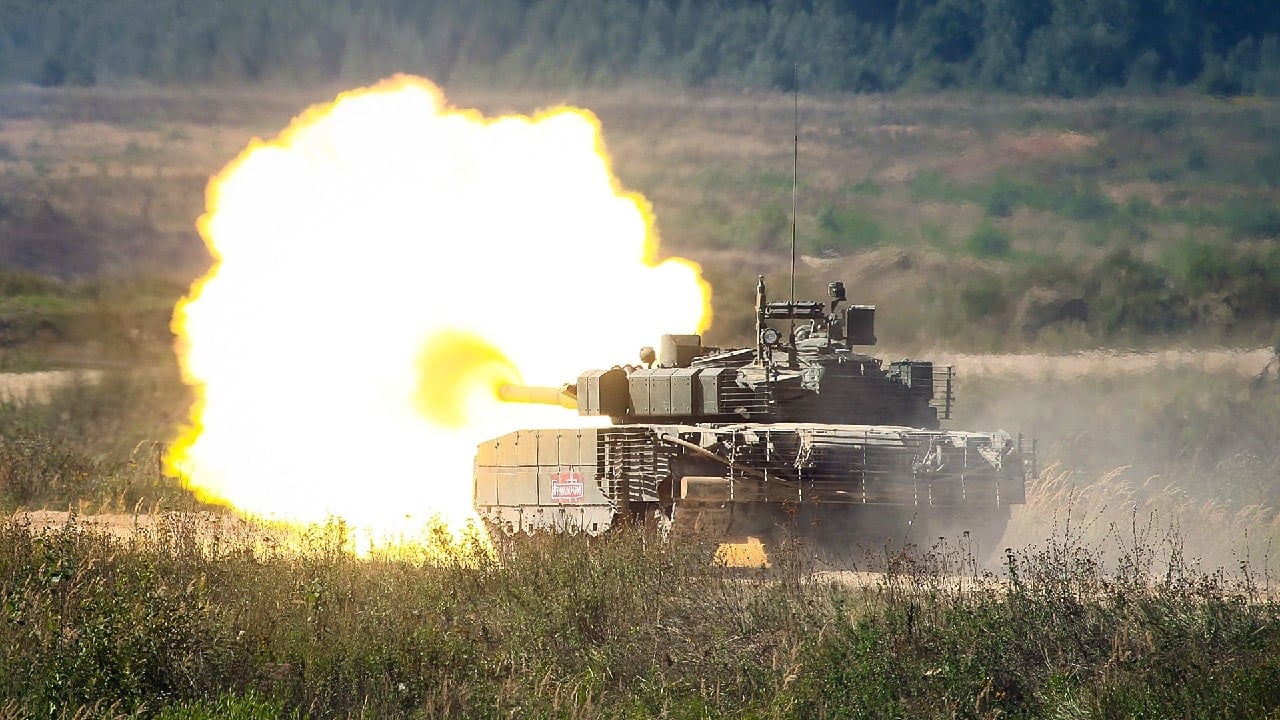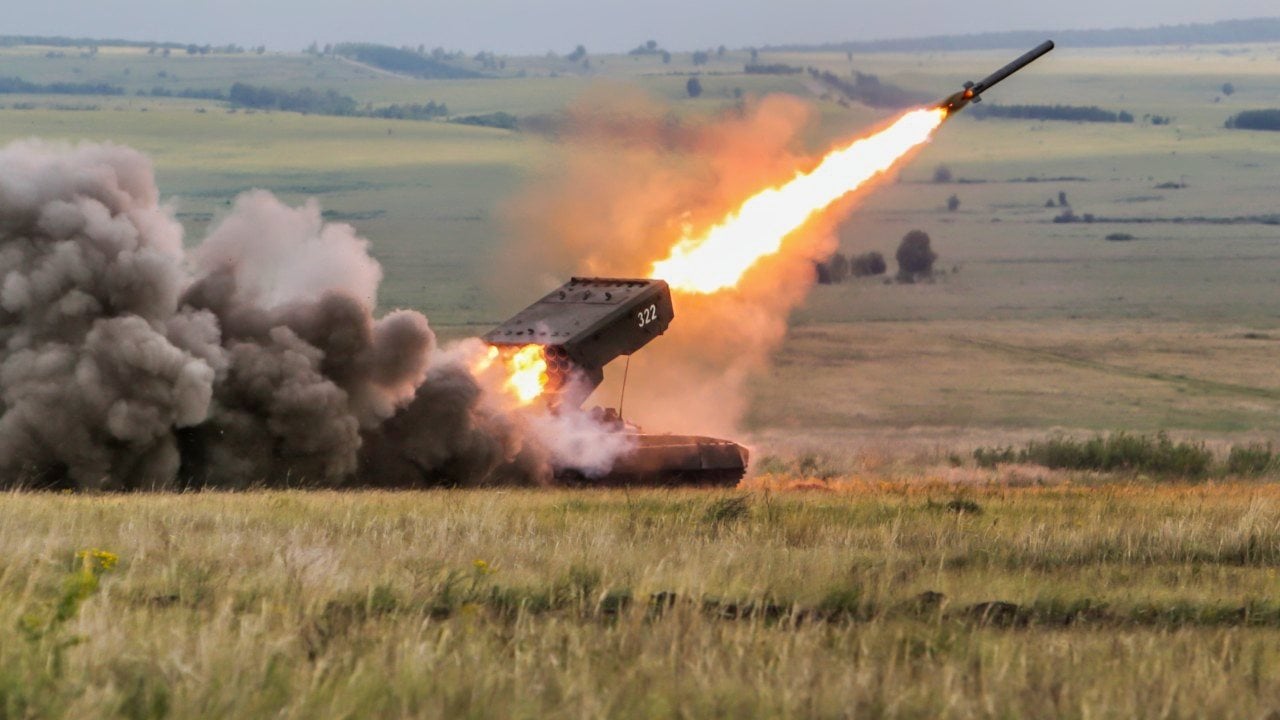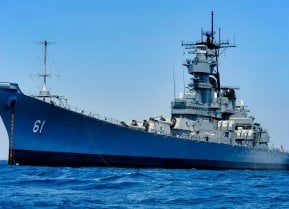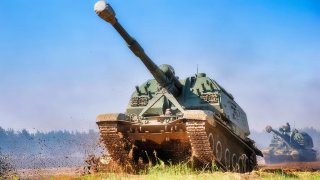Could a Ukraine-Russia Deal Have Cut Moscow’s Invasion Short? Not So Fast
The talks failed for many reasons—but not because of Kyiv’s unwillingness to compromise with Russia or its subservience to the West.
Wall Street Journal correspondent Yaroslav Trofimov’s superb, just-published book on the Russian invasion of Ukraine, Our Enemies Will Vanish, contains an illuminating discussion of what exactly happened in the talks that Russia and Ukraine held soon after the war began on February 24, 2022. It has long been asserted, notably by those who believe that Russia’s war was defensive in nature and indeed forced on it by NATO expansion, that a golden opportunity to end the invasion was missed during those discussions—by Ukraine and because of Western pressure on Kyiv to reject any deal with Moscow. Trofimov debunks this theory, as I do here. While we reach the same conclusion, our pathway to it and the evidence we use are not identical.
A Missed Opportunity to End Russia-Ukraine War?
But first, the substance of the claim, one that refuses to die.
The gist is that a Russo-Ukrainian grand bargain was on the table soon after the invasion. The terms were simple: Moscow would end the war if Kyiv abandoned its plan to join NATO and declared neutrality instead. But according to a narrative that enjoys wide currency, Ukraine, pressured by the West, refused, sentencing itself to a horrific war now nearing the two-year mark.
This account deserves careful consideration because it is far from a crackpot theory. It is logically plausible, rests on evidence, and has been embraced by prominent participants in the debate on American policy toward Ukraine. Russia certainly viewed NATO’s march toward its borders as a significant threat—long before Vladimir Putin became president in 2000. An irate Boris Yeltsin made that clear in December 1994, years before NATO admitted its first new members in 1999.
Putin was even more combative. After the alliance opened its door in principle to Ukraine (and Georgia) at its 2008 Bucharest summit, he warned that were Ukraine to join NATO, it would lose Crimea and the Donbas and “simply disintegrate.”
Soon after the 2022 invasion began, Ukraine and Russia held talks in Gomel, Belarus, on February 28, March 3, and March 7 that continued virtually, as well as in Istanbul, Turkey, on March 29. Their foreign ministers also met on March 10 at Turkey’s Antalya Democracy Forum. The top negotiators, Vladimir Medinsky of Russia and David Arakhamia of Ukraine, have confirmed that Moscow’s priority was indeed Ukraine’s disavowal of NATO.
Furthermore, Ukrainian president Volodymyr Zelensky and then-British prime minister Boris Johnson—who allegedly told Ukraine to fight rather than compromise—did meet in Kyiv on April 9. Plus, former Israeli prime minister Naftali Bennet, who visited Putin on March 5 and mediated between him and Zelensky, has contended that the West “blocked” a Russia-Ukraine deal. Yet, on close inspection, this tidy tale doesn’t hold up well.
The Claim Vs. The Evidence
To begin with, Ukraine was no closer to joining NATO in 2022 than in 2008. It had waited fourteen years without even receiving a Membership Action Plan, a prerequisite for membership. Clearly, NATO lacked the unanimity of its charter mandates to admit additional members. It is curious, then, that Putin felt compelled to invade Ukraine to avert a threat that was nowhere on the horizon.
Furthermore, even before the invasion, Zelensky—presented in the narrative as a pawn of the West—acting independently, offered to renounce NATO. As part of the long-running Minsk negotiations on the status of the Russian-backed Donbas statelets, Dmitry Kozak and Andriy Yermak, Zelensky’s chief of staff, also discussed Ukraine’s neutrality as a way to avert the looming war. Kozak conveyed the proposal to Putin, who rejected it, saying that his goals had expanded and included annexing Ukrainian territory. Within forty-eight hours after the invasion began, Kozak phoned Yermak, demanding Ukraine’s surrender. Yermak hung up in a huff.
That same day, Zelensky reiterated that he was “not afraid to talk about neutral status,” and on March 15, he had concluded that NATO would never admit Ukraine. On March 29, Ukraine gave Russia a ten-point plan, the “Istanbul communique,” which also included a pledge not to join military alliances or to host foreign troops or bases in return for a multilateral security guarantee.
The West wasn’t a puppet master. Arakhamia acknowledged that Ukraine kept it informed about the talks and that Johnson did urge Kyiv to fight on. Still, Arakhamia categorically denied the Russian claim that Johnson or the United States had pressured Ukraine to renounce NATO membership, explaining that Kyiv would never have signed an agreement on neutrality before securing security guarantees and that, even then, it would have required the Ukrainian parliament’s approval.
Though Naftali Bennet asserted (then walked back) that the West blocked the deal, he offered no details on when and how that happened and how he learned about it. And his version of related events is unreliable. He claimed credit for persuading Putin not to kill Zelensky during his March 5 meeting, adding that only when he himself had conveyed Putin’s assurance to Zelensky did the latter strike a brave pose for a “selfie,” declaring he was unafraid. In fact, in an effort to reassure the public that the government and army were standing firm, Zelensky, joined by top Ukrainian leaders, appeared, unafraid, in central Kyiv on February 25.

The other “proof” that the West had scotched a deal that would have stopped the Russian invasion early is supposedly contained in a video clip featuring Oleksandr Chaly, a member of Ukraine’s negotiating team. But at no point does Chaly say that. He merely notes that by April, Putin realized the invasion was a blunder and wanted an agreement with Kyiv.
Still, Putin would not have stopped his army without certainty about Ukraine’s neutrality, something Zelensky could not have provided unilaterally. A February 19, 2019, amendment to Ukraine’s constitution enshrined its determination to join NATO, and Putin is not one to have settled for “I’ll do my best. Please wait.”
It Wasn’t Just About NATO
Keeping Ukraine out of NATO was doubtless central for Putin, but the Ukrainians had their own agenda. It included finalizing Crimea’s status in negotiations over fifteen years, a provision they included in the Istanbul Communique but that Putin flatly rejected. Kyiv would also not have agreed to neutrality, as well as Russia’s continued control of Ukrainian territories in the east and south that Putin’s army had overrun following the invasion. Moreover, the Kremlin’s proposed limits on the Ukrainian military’s size and capabilities were incompatible with Kyiv’s assessment of an effective national defense.
And even if Zelensky, frantic to end the war, was prepared to forfeit Crimea and other parts of Ukraine, he lacked the authority. Article 73 of Ukraine’s constitution stipulates, “Issues of altering the territory of Ukraine are resolved exclusively by an All-Ukrainian referendum.”
These complications explain Medinsky’s lament that the negotiators found common ground on NATO but remained too far apart on territorial matters to have a text ready to show the top leaders. He was not optimistic about bridging the gap.

Kyiv’s mistrust of Moscow, based on past experiences, was another barrier to a deal. Russia was a signatory of the December 5, 1994, Budapest Memorandum, which included a guarantee to recognize Ukraine’s borders and never to use force to undermine its territorial integrity. Yet, in 2014, Putin annexed Crimea following an illegal referendum. And three days before the 2022 invasion, he recognized the independence of the Donbas enclaves. Ukrainian leaders were, therefore, wont to believe that Moscow would pocket any concessions and seek more later.
The atrocities Russian troops committed in Bucha, a town fifteen miles northwest of Kyiv, also impeded an accord. Once the Russian army departed Bucha in April and the magnitude of its abuses became known, Ukraine’s leaders were not only in no mood to compromise but their resolve to resist was strengthened.
Where’s the Beef?
It’s unclear how close Russia and Ukraine came to clinching a deal. Neither has released internal communications or the text of a provisional agreement. While meeting with African leaders this past June, Putin brandished a document, saying it was the draft accord “initialed by the head of the Kyiv negotiating team” in Istanbul. Yet the Kremlin hasn’t published it. As Arakhamia put it, “If he had this document, why didn’t he make it public?”
However, this much is clear: the talks failed for many reasons—but not because of Kyiv’s unwillingness to compromise with Russia or its subservience to the West. It doesn’t follow, however, that the myth that Kyiv blew a critical opportunity to save itself because the West strong-armed it will die, no matter the efforts made by Trofimov, me, and others. Myths, after all, are not sustained by facts but rather by imperviousness to them.
About the Author: Rajan Menon
Rajan Menon is the director of the grand strategy program at Defense Priorities, a professor emeritus at the Colin Powell School for Civic and Global Leadership at the City College of New York, and a Senior Research Scholar at Columbia University’s Saltzman Institute of War and Peace Studies.
Images: Shutterstock.


